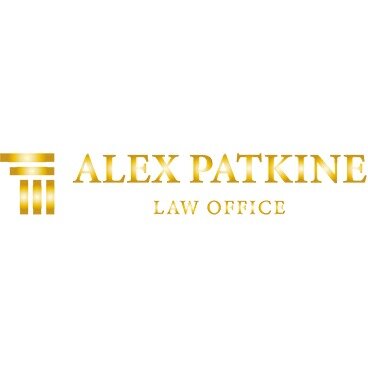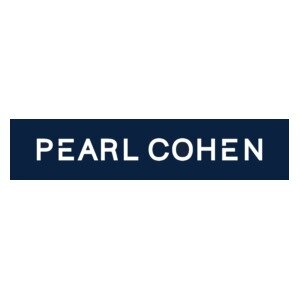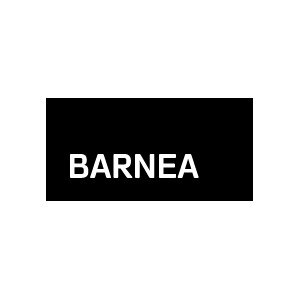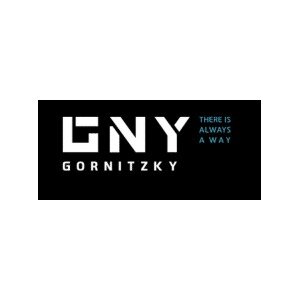Best Public-Private Partnerships (PPP) Lawyers in Tel Aviv
Share your needs with us, get contacted by law firms.
Free. Takes 2 min.
List of the best lawyers in Tel Aviv, Israel
About Public-Private Partnerships (PPP) Law in Tel Aviv, Israel
Public-Private Partnerships, commonly known as PPPs, are collaborative agreements between government entities and private sector companies aimed at funding, constructing, and operating projects that serve the public interest. In Tel Aviv, Israel, PPPs are utilized for a range of projects such as infrastructure, transportation, education, and healthcare developments. These partnerships enable the pooling of resources, expertise, and risk sharing between the public and private sectors, helping to drive innovation and efficiency in public services.
PPP law in Tel Aviv is shaped by both national Israeli legislation and municipal regulations. The legal landscape is designed to provide structured frameworks for contract negotiation, implementation, and oversight, while protecting the interests of all parties and ensuring the projects contribute positively to the public.
Why You May Need a Lawyer
Navigating the legal aspects of PPPs in Tel Aviv can be complex. Engaging a lawyer with specific expertise in PPP law is vital for several reasons:
- Reviewing and negotiating PPP contracts to ensure fairness and legal compliance.
- Handling disputes that may arise between public authorities and private entities.
- Advising on regulatory requirements and risk assessment.
- Assisting with the bidding process and government tenders.
- Ensuring project financing meets legal and financial standards.
- Explaining intellectual property and confidentiality issues relevant to technical solutions or innovations.
- Facilitating project implementation through adherence to local and national laws.
- Advising on tax implications and structuring financial arrangements.
- Supporting clients during audits or governmental reviews.
- Helping assess environmental, social, and governance (ESG) compliance as required by Israeli standards.
Local Laws Overview
Several key legal elements affect PPPs in Tel Aviv:
- Israeli Tender Law - PPPs generally require a public tender process governed by the Tender Law, ensuring transparency and fair competition among private entities bidding for government contracts.
- Concession Agreements - These legally binding documents define the rights and duties of both government and private partners, including project scope, risk allocation, payment structure, and performance standards.
- Municipal Oversight - The Tel Aviv Municipality plays a significant role in overseeing PPP projects within city limits, applying additional regulations as needed.
- Project Financing Regulations - Israeli law mandates rigorous financial scrutiny to ensure the viability of PPP projects and compliance with anti-money laundering regulations.
- Environmental and Planning Approvals - Many PPP projects require environmental impact assessments and must secure planning permissions both at the city and national levels.
- Dispute Resolution - Contracts often stipulate arbitration or mediation clauses in case of disputes, following Israeli contract law guidelines.
- Reporting and Auditing - Ongoing reporting obligations ensure transparency and accountability throughout the project lifecycle.
Frequently Asked Questions
What is a Public-Private Partnership (PPP)?
A PPP is a structured collaboration between a public authority and a private company to deliver a project or service intended for public benefit, such as transportation infrastructure or schools.
How are PPPs initiated in Tel Aviv?
Projects are usually initiated by government agencies or the municipality, often through public tenders inviting private companies to propose solutions and investments.
What laws and regulations govern PPPs in Israel?
PPPs are governed by the Israeli Tender Law, Contract Law, Planning and Building Law, and municipal regulations specific to Tel Aviv.
What types of projects commonly use the PPP model in Tel Aviv?
Common projects include public transport networks, highways, wastewater treatment plants, public buildings, and technology-driven municipal services.
What risks do private partners face during a PPP?
Risks can include construction delays, regulatory changes, financial risks, demand shortfalls, and compliance with evolving legal or environmental standards.
How are disputes resolved between public and private partners?
Most PPP contracts in Tel Aviv include provisions for dispute resolution, often favoring arbitration or mediation under Israeli law before considering court litigation.
Do PPP projects require environmental assessments?
Yes, many PPP projects, especially those impacting land use or natural resources, must undergo environmental and planning approvals by relevant authorities.
How is project financing regulated for PPPs in Tel Aviv?
Project financing is subject to close regulatory oversight, including requirements for transparency, financial stability, and anti-corruption compliance, as regulated by Israeli law and often the Ministry of Finance.
Can foreign companies participate in PPPs in Tel Aviv?
Yes, foreign companies can participate, but they must comply with Israeli tender laws and may face certain restrictions or requirements related to local participation, labor laws, and taxation.
What role does the Tel Aviv Municipality play in PPPs?
The municipality is usually responsible for planning, overseeing, and regulating PPP projects within city boundaries, ensuring alignment with local development goals and compliance with municipal policies.
Additional Resources
If you are seeking more information or legal support regarding PPPs in Tel Aviv, consider these resources:
- Israeli Ministry of Finance - Public-Private Partnership (PPP) Unit (known as Government Companies Authority)
- Tel Aviv Municipality - Department of Planning and Infrastructure
- Israel Bar Association - Directory of legal professionals specializing in PPP law
- Invest in Israel - Official governmental body offering guidance to investors in Israeli infrastructure projects
- Israel Export Institute - Provides information on partnership opportunities in public projects
Next Steps
If you need legal assistance with a PPP in Tel Aviv, it is important to take the following steps:
- Identify and document your specific needs or concerns related to the PPP project.
- Research and consult with lawyers who have experience in PPP law, particularly those familiar with Israeli and Tel Aviv municipal regulations.
- Schedule an initial consultation to discuss your circumstances and outline your objectives.
- Prepare any relevant documents, such as drafts of contracts, tender documents, or communication with public authorities.
- Follow your lawyer’s advice regarding risk analysis, contract negotiation, and compliance with legal procedures to maximize your chances of a successful partnership.
Taking proactive legal steps early in the PPP process helps mitigate risks, ensures clarity of responsibilities, and provides a solid foundation for compliance with all required laws and regulations in Tel Aviv, Israel.
Lawzana helps you find the best lawyers and law firms in Tel Aviv through a curated and pre-screened list of qualified legal professionals. Our platform offers rankings and detailed profiles of attorneys and law firms, allowing you to compare based on practice areas, including Public-Private Partnerships (PPP), experience, and client feedback.
Each profile includes a description of the firm's areas of practice, client reviews, team members and partners, year of establishment, spoken languages, office locations, contact information, social media presence, and any published articles or resources. Most firms on our platform speak English and are experienced in both local and international legal matters.
Get a quote from top-rated law firms in Tel Aviv, Israel — quickly, securely, and without unnecessary hassle.
Disclaimer:
The information provided on this page is for general informational purposes only and does not constitute legal advice. While we strive to ensure the accuracy and relevance of the content, legal information may change over time, and interpretations of the law can vary. You should always consult with a qualified legal professional for advice specific to your situation.
We disclaim all liability for actions taken or not taken based on the content of this page. If you believe any information is incorrect or outdated, please contact us, and we will review and update it where appropriate.

















